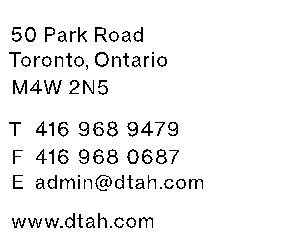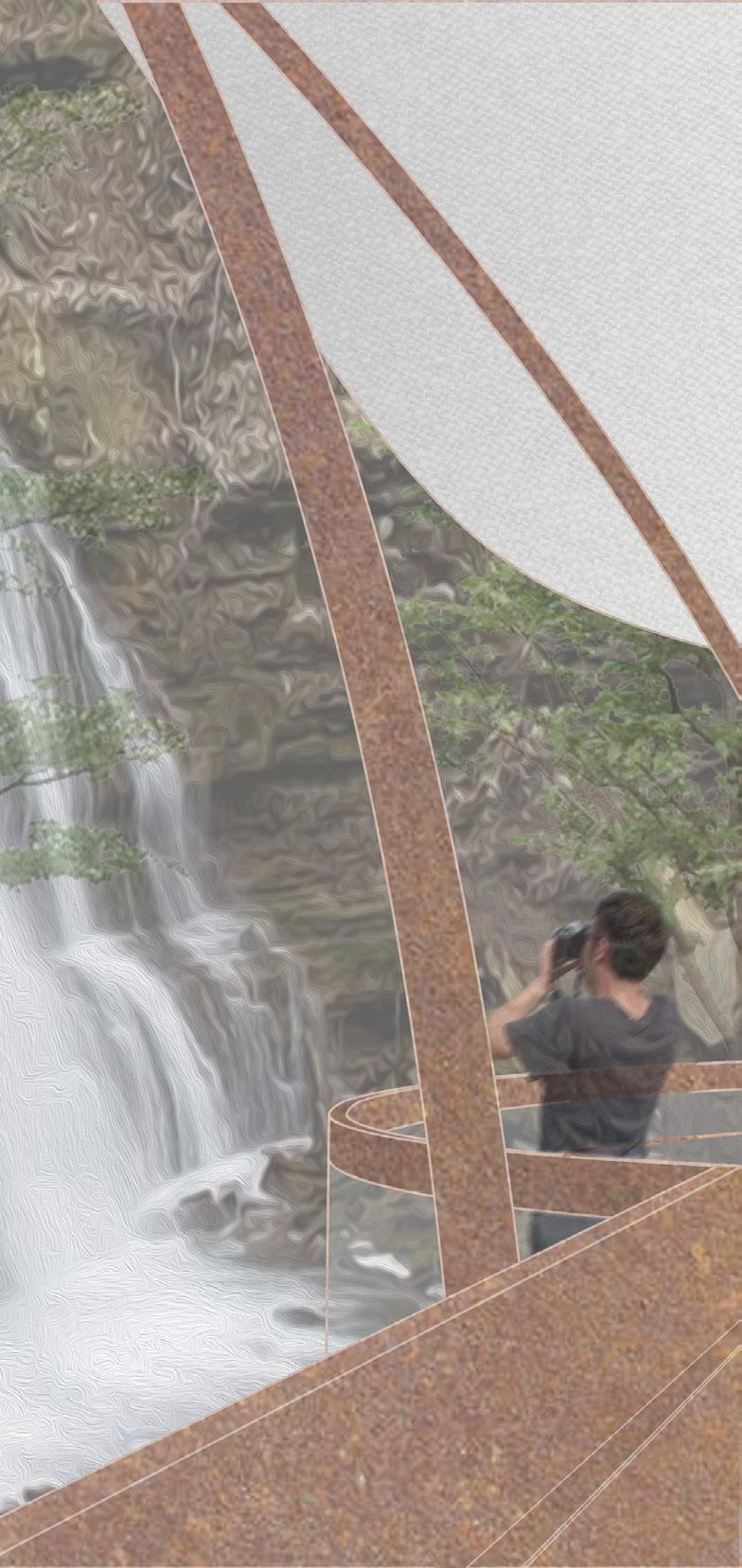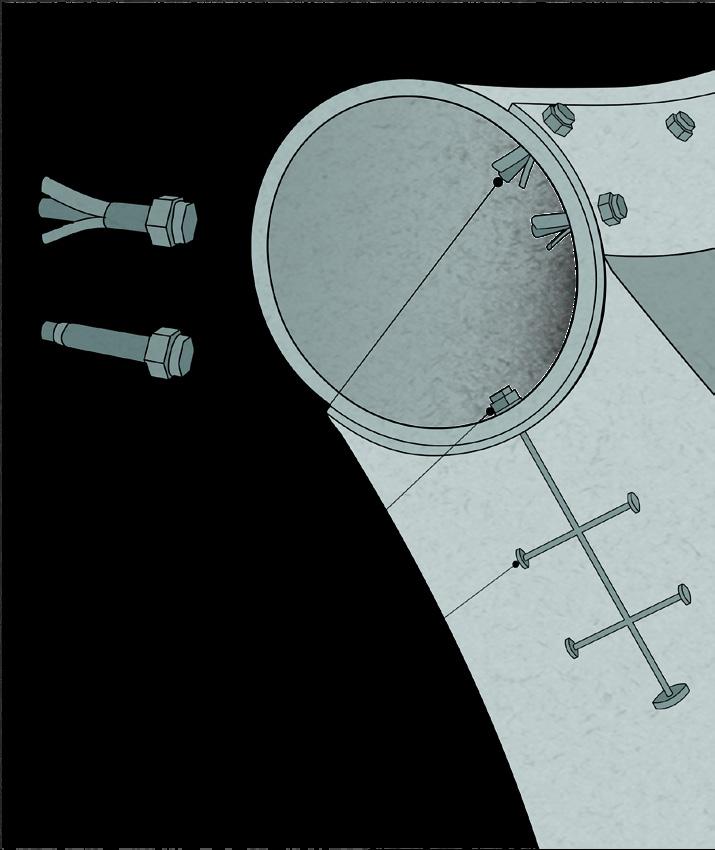




y name is Avery Thorne. ’m currently a second-year student at the University of Waterloo School of Architecture living in Cambridge ntario. ’m seeking a -month work placement from January 2023-April 2023
nvironmentalism and humanities have been extremely important parts of my life for as long as can remember. y choice in studying architecture stems from a deep-rooted passion for climate and social justice. ’m constantly inspired by the people and environments around me and o en draw from my experiences in my designs. am driven by the desire to create meaningful and positive change within the field of architecture and beyond.

n my free time enjoy experimenting with art expanding my knowledge in many fields and exploring the outdoors. have a long-time love for travelling and learning about different cultures. hope to pursue a job that allows me to develop these passions and learn new skills in an engaging and inspiring environment.
Please enjoy this collection of my academic and professional work

Presentation kills
enthusiastic capabilities Certification
• xcellent nglish writing and erbal Communication
• Proficiency in design so ware
• odel aking D Printing
• Hand dra ing
• orksite afety all Protection Certification
• AutoCAD
• icroso ffice
• nscape
• Grasshopper
Architecture, Landscape Architecture & ay 2 22 - uly 2 22
• rgani ed inventory
• Prepared food
firm on a variety of architectural projects including:
eptember 2 2 - ovember 2 21
• aintained public health standards during the Covid-19 pandemic
• perated cash register
• anaged the stocking and store-wide cleaning
• Placed orders and researched new products
harf and Danforth ass Timber Pilot tudies
Pavillion client re uirements Building Code drawings for costing modeling cost estimates esearched mass timber precedents and structural details modeling diagrams
arch 1 th-1 th 2 2
• Chosen by application to annual Talking Back eminist edia Conference as a member of the teering Committee
• acilitated the event and voting on speakers presentation groups
self-assessment for previous projects outlining community impact sustainability document for the firm to use as guidelines for future projects
Green ustainable tandards visits and produced deficiency reports
• Promoted the event through social media
• Aided speakers with their presentations
President’s Scholarship of Distinction ACADEMIC AVERAGE OF 90-95%, JUNE 2021
Waterloo School of Architecture OSSD, French Immersion
Present June 2021
with a Bachelor of Architectural tudies (Class of 2 26) standing
Fine Arts Award - John F. Ross CVI JUNE 2021
Art and Writing Featured in TOP Magazine AUGUST 2020
Graphic Design/ Media Art Award - John F. Ross CVI JUNE 2020
Art Featured at the Art Gallery of Guelph


We confirm that Avery Thorne worked at DTAH as a summer intern student for three months from May through July 2022, following her first year in the University of Waterloo Architecture program. In that time her main focus was assisting on the Mass Timber Pilot Study project for CreateTO, as part of a multi consultant team looking at design, building code and approvability impacts associated with utilizing mass timber construction for an 18 storey high rise residential tower in Toronto Avery developed 3D modelling and high quality graphic renders for the overall building as well as demonstration mass timber construction assemblies Other studio work included preparing schematic design drawings for the Bluffers Park Pavilion for City of Toronto, and helping develop DTAH’s Sustainability Nutrition Label, a self assessment guideline for sustainable projects in both landscape and architecture. She also assisted with various contract administration tasks including site visits and preparing Deficiency Review reports.
We confirm that Avery Thorne worked at DTAH as a summer intern student for three months from May through July 2022, following her first year in the University of Waterloo Architecture program. In that time her main focus was assisting on the Mass Timber Pilot Study project for CreateTO, as part of a multi consultant team looking at design, building code and approvability impacts associated with utilizing mass timber construction for an 18 storey high rise residential tower in Toronto. Avery developed 3D modelling and high quality graphic renders for the overall building as well as demonstration mass timber construction assemblies. Other studio work included preparing schematic design drawings for the Bluffers Park Pavilion for City of Toronto, and helping develop DTAH’s Sustainability Nutrition Label, a self assessment guideline for sustainable projects in both landscape and architecture She also assisted with various contract administration tasks including site visits and preparing Deficiency Review reports
Avery has a natural enthusiasm and outgoing personality that served her well in our collaborative and creative studio setting. She is hard working, motivated to learn and genuinely interested in all aspects of a project. She advanced her 3 D modelling and rendering skills in her time with us, and gained some good real world experience with CAD documentation and detailing With effective oversight, she can be relied upon to put her head down, help move projects forward and deliver in a deadline situation
Avery has a natural enthusiasm and outgoing personality that served her well in our collaborative and creative studio setting. She is hard working, motivated to learn and genuinely interested in all aspects of a project. She advanced her 3 D modelling and rendering skills in her time with us, and gained some good real world experience with CAD documentation and detailing With effective oversight, she can be relied upon to put her head down, help move projects forward and deliver in a deadline situation
We would not hesitate to recommend Avery to a prospective employer looking for the above combination of skills. Please feel free to call if you require any further elaboration on the above.
We confirm that Avery Thorne worked at DTAH as a summer intern student for three months from May through July 2022, following her first year in the University of Waterloo Architecture program. In that time her main focus was assisting on the Mass Timber Pilot Study project for CreateTO, as part of a multi consultant team looking at design, building code and approvability impacts associated with utilizing mass timber construction for an 18 storey high rise residential tower in Toronto Avery developed 3D modelling and high quality graphic renders for the overall building as well as demonstration mass timber construction assemblies Other studio work included preparing schematic design drawings for the Bluffers Park Pavilion for City of Toronto, and helping develop DTAH’s Sustainability Nutrition Label, a self assessment guideline for sustainable projects in both landscape and architecture She also assisted with various contract administration tasks including site visits and preparing Deficiency Review reports
We would not hesitate to recommend Avery to a prospective employer looking for the above combination of skills. Please feel free to call if you require any further elaboration on the above.
Yours sincerely, DTAH ARCHITECTS LIMITED
Avery has a natural enthusiasm and outgoing personality that served her well in our collaborative and creative studio setting. She is hard working, motivated to learn and genuinely interested in all aspects of a project. She advanced her 3 D modelling and rendering skills in her time with us, and gained some good real world experience with CAD documentation and detailing With effective oversight, she can be relied upon to put her head down, help move projects forward and deliver in a deadline situation
We would not hesitate to recommend Avery to a prospective employer looking for the above combination of skills. Please feel free to call if you require any further elaboration on the above.
Yours sincerely, DTAH ARCHITECTS LIMITED


Mark Langridge, OAA, FRAIC, LEEDTM AP Partner






The Stacked Library demonstrates the infusion of architecture and agriculture to create a space to learn , grow and engage in the community. Located in the heart of the Riverside neighbourhood of Toronto, the space is a combination community library and a hydroponic greenhouse. The Stacked Library maintains the goal to promote sustainable agriculture and educate citizens about sustainable food production.

The community can participate in the growing of produce in the greenhouse, or through the library’s shared market space and café. As the global food crisis and disappearing farmland become an increasing concern, urban farming is more necessary than ever. By providing citizens with locally-sourced produce, utilizing otherwise unused roof space, and educating people on how to sustain themselves in urban environments; the Stacked Library combines growing minds with growing food
The shape of the library mimics a book stack to create a visual connection between form and function. The curved sides form the spine of the book and the complex, staggered facade alludes to pages





Located at 39 Davies Avenue in the city of Toronto, this site is conveniently situated in the middle of a residential area. This area is an ideal location for a greenhouse, as it receives direct sunlight throughout the day. The ample, natural light is welcomed into the greenhouse and diffused through the facade panels into the library. This not only controls the climate of the interior but also protects the books within from sun exposure. The facade’s panels are fixed in areas and operable in others. On each floor, operable bi-fold windows on the inside of the facade allow for air circulation and passive cooling. Passive strategies such as these are integrated throughout the design of the library and greenhouse to reduce the need for supplemental energy.



Patrons enter the library via the side doors. Upon entrance, they are greeted by the staff from the circulation desk. Behind the circulation desk, the staff have a break room and private washrooms. On the first floor, there are plenty of tables to read, study, or enjoy a drink from the cafe which is also located on this floor. Through bifold doors, one is able to access outdoor seating, as well as the farmer’s market. The first floor is large and all furniture is movable, thus allowing the market space to be moved indoors for winter months.







4The final floor is the rooftop greenhouse. The greenhouse uses hydroponic agriculture, a farming system where produce is grown in a nutrient solution rather than in soil. This form of agriculture is beneficial as it requires less land and water use, and large yields of food can be produced yearround. The roof also features a small herb garden and outdoor seating. The site has views on both sides; one looking towards the Toronto skyline and the other at the market and park. The entirety of the Stacked library and greenhouse is accessible and exploreable to the public.
As one explores the building, the program becomes more specific. The third floor is intended for younger visitors. It features children’s books, naturally lit reading nooks, playspaces and a staff area for supervision. Seats are hung on the west side along the “spine” of the structure.

The next floor is the library and quiet study space. On this floor, there are large tables for studying, reading nooks, books, comfortable couches and a covered patio. This patio is protected by the facade allowing people to sit outside without being disrupted by the city.

 CHILDREN’S FLOOR
CHILDREN’S FLOOR








 MODEL OF STACKED LIBRARY
MODEL OF STACKED LIBRARY

Due to the amount of foot traffic on and off the trail, the site has become damaged and suffers from erosion. The Sherman Falls Bridge addresses this concern by encouraging visitors to remain on the designated trail to not damage the surrounding ecosystems. This is achieved without sacrificing the experience of the falls through it’s design.

The bridge features two circulation paths; one meant for direct engagement with the falls and the other for a more serene experience with the creek. Visitors can choose which part of the waterfall to explore.

The Sherman Falls Bridge curates experience through views by the gesture of its structure. The locally sourced-steel structure and fibreglass-encapsulated canvas canopy encourage movement across the bridge. The glass viewpoint frames an unobstructed view of the waterfall on one end, and the creek on the other.

The Sherman Falls bridge promotes ecological conservation while continuing to allow visitors to fully experience the beauty of the site.



ventilated mesh membrane
structure supporting membrane

cm Ø steel canopy supports

cm clear silica glass
cm weathered corten steel panel
providing additional support
cm corten steel deck
cm
welded detail
10 cm steel I-beam support
cm concrete
cm



This northern oasis is located between the coast of Yellowknife (Soòmbak’é) and the island of Joliffe. Tucked along the edge of Great Slave Lake, this area is recognized as the traditional land of the Yellowknives Dene First Nation. Though the environment of the area is harsh and fluctuates throughout the year, the Inuit and Dene people have inhabited the region for millennia; building homes and structures to adapt to their surroundings. This oasis and research base takes design inspiration from traditional, local design with a blend of modernity.
Dehtł’à Gokó serves as a base for two climate researchers as well as their cozy abode. It combines the use of modern technology and sustainable systems while honouring the traditions of the region.







Due to the subarctic climate of the region and since the home on a seasonally freezing bay, the use of energy-efficient resources vital. The home is clad in local spruce to mimic its neighbours prioritize local materials. The house is powered by solar panels receive abundant energy from unobstructed sunlight. To the extreme cold, the heating system consists of a central plemented with a heat pump and radiant floor heating. Water directly from the lake, and grey water is treated by a system before being released back into the lake.


home is docked resources is neighbours and panels which stay warm in central fireplace sup Water is sourced system of filters

The bridge spans 300m over Lake Ontario connecting Toronto’s port along the Cherry Beach path to Ward’s Island. Crossing these drastically different areas, one can leave their city life at the threshold as they cross to the island. The form of the bridge frames a view of the Toronto skyline as it curves toward the city, giving the user an opportunity to view the city from a new angle.
With a dual-lane bike path and flat deck, the bridge is accessible for cyclists as well as pedestrians with any mobility assistance devices. Two seating areas offer unique views; one facing the city skyline and the other Lake Ontario. The gradually winding ramps on either side of the crossing reach a height of 15m to allow large boats to pass easily.

Since the bridge is experienced from all angles its clean aesthetic is consistent. Whether viewed from above in a seaplane, beneath by boat or on foot; the Eastern Entry is an experience for all.
The form of the infinity symbol inspired the design of the bridge. The infinity symbol represents connection in the broadest sense. The symbol can be observed in the plan of the bridge; as the arches bow outward to create a continuous curve. The form of the crossing symbolically represents the importance of connection between the city and nature









Sleeve precisely fitted over splice connection as an alternative to welding, but which achieves the appearance of welded hollow structural section (HSS) pipes.




Pin connecting hanger from above with upper hanger plate welded to HSS member.
Lower hanger plate welded to deck, pin and socket connection joint gap tolerences minimized.
Rounded pin connection welded to plate, plate bolted to deck with standard hex bolts. Curved plates welded to HSS at an angle.
HSS pipe bolted to steel plate with hot dipped galvanized expansion bolts (can be installed where only one side of the HSS is accessible) and expand during installation.


DTAH CO-OP SUMMER 2022I I
Rhino 7, AutoCAD, Adobe Suites & PhotoshopI

Between first and second year I had the opportunity to work at DTAH; a Toronto based Architecture, Landscape Architecture & Urban Design firm. During my internship I assisted with a diverse range of projects. One of the main projects was a Mass Timber pilot study for two apartment proposals. Both apartments are proposed to be located in Toronto and include 50% market and 50% affordable housing.
The firm’s intention was to encourage the client to make the sustainable swap from a typical concrete building to a mass timber structure. My task was to model the structure of one of the buildings as well as an individual unit. The model diagram below demonstrates the constructional stages of the project; from its concrete core, timber column and beam structure, and lastly encapsulated with GWB. The purpose of this modeling was to demonstrate the unique layout of each floor in accordance to its column and beam pattern.




 QUEEN’S WHARF ENCAPSULATED STRUCTURE
QUEEN’S WHARF
QUEEN’S WHARF ENCAPSULATED STRUCTURE
QUEEN’S WHARF
My second task for this pilot project was to research mass timber precedents and propose an assembly for the unit walls and floors.
The assembly had to be consistent with the sustainable goals of the firm as well as ensure the safety of the building. I modeled the assemblies of the wall and floor structures and annotated them according to their respective projects. These diagrams were used to demonstrate the different assemblies which would be present throughout the units. They also served as a visual aid to for construction.
These diagrams and drawings were compiled in a proposal and presented to the partners and clients.
Floor Assemblies:
F1: Exposed underside - Engineered wood flooring on 2mm closed cell foam - 38mm concrete topping - 9mm [Owens Corning QuietZone] closed cell foam - 7-ply CLT (245mm) floor slab
F2: Encapsulated - Engineered wood flooring on 2mm closed cell foam - 38mm concrete topping - 9mm [Owens Corning QuietZone] closed cell foam - 5-ply (175mm) / 7-ply (245mm) CLT floor slab - 3 x 16mm Type X GWB with resilient channel

F3: Encapsulated - Ceramic tile with grout - 38mm concrete topping - 9mm [Owens Corning QuietZone] closed cell foam - 5-ply (175mm) / 7-ply (245mm) CLT floor slab - 3 x 16mm Type X GWB with resilient channel
Beam Assemblies:
B1: - 215x266mm Glulam beam - 3 x 16mm Type X GWB encapsulation
B2: - 175x266mm Glulam beam - 3 x 16mm Type X GWB encapsulation
Wall Assemblies:
Demising wall: DW1 (non-loadbearing):
- ULC Des W453, STC 54 (RAL-TL-83-216) - 16mm GWB - Resilient channel one side spaced 610mm o.c. - 92mm steel studs 610mm o.c. - 75mm SAFB (sound attenuation fire blanket) insulation - 16mm GWB - Optional veneer plaster
Exterior wall: E1: Aluminum Composite Panel (Tower):
- 57mm Aluminum composite panel drained and ventilated cladding system - 100mm Thermally separated galvanized steel z-girts with 100mm polyisocyanurate rigid insulation (R24) - Continuous Vapour retarder membrane - 16mm Type X gypsum-based sheathing board - 152mm Steel studs @ 400 o.c. with 140mm mineral wool batt insulation (R22) - Continuous Air barrier / vapour retarder - 16mm Type X GWB (ULC W453 – 1hr FRR)
Column Assemblies:
C1: 2-9F
- 430x418mm (square) or 265x722mm (rectangular) Glulam column - 3 x 16mm Type X GWB encapsulation
B4:
B3: - 265x342mm Glulam beam - 3 x 16mm Type X GWB encapsulation - 215x342mm Glulam beam - 3 x 16mm Type X GWB encapsulation
- 365x342mm (square) or 265x4XXmm (rectangular) Glulam column - 3 x 16mm Type X GWB encapsulation
C3: 15-18F
C2: 10-14F - 315x304mm (square) or 265x3XXmm (rectangular) Glulam column - 3 x 16mm Type X GWB encapsulation












The Scarborough Bluffs stretch 15 km along the Lake Ontario shore in Toronto. During my internship with DTAH, we were tasked by the City of Toronto to design an accessible public washroom for visitors of the Bluffs including staff facilities.
The pavillion is proposed to be constructed using sustainable materials and mimic the surrounding sedementary bluffs with a rammed earth exterior wall. The West building features a 12 stall gender-neutral washroom, 2 accessible stalls and a universal facility. The staff area meets all the requests outlined by the parks staff including private showers, a kitchen, a meeting room and a heated garage. The East building features public changerooms primarily stores the staff recreational equipment and seasonal vehicles.
My tasks included attending client meetings to discuss staff requirements, researching the Ontario Building Code and Toronto Green Standards to ensure standards were met and exceeded standards, conceptualizing floorplans, preparing drawings for costing and other assorted tasks.
